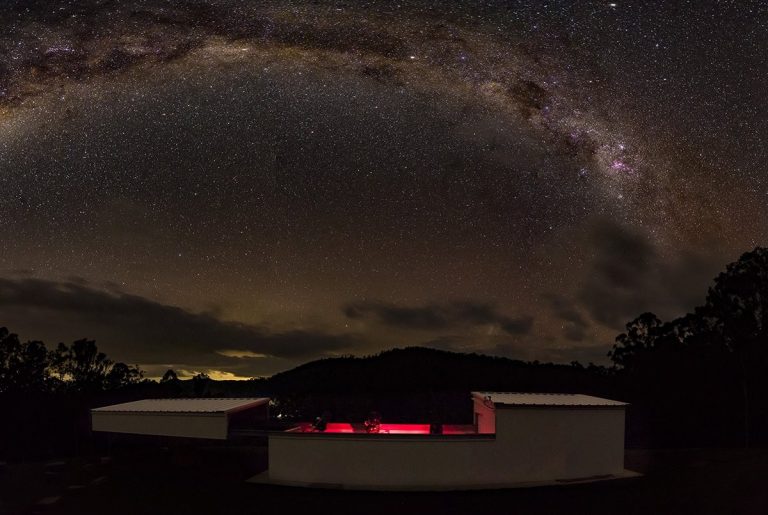
A top private girls’ school in Brisbane, Australia has launched its very own world-class observatory for students.
To mark World Space Week between Oct 4 and 10, 2017, Brisbane Girls Grammar School has launched its remotely operated Dorothy Hill Observatory and telescopes, providing learning opportunities in a range of science, technology, engineering and mathematics (STEM) disciplines.
“The Dorothy Hill Observatory will have a transformative impact on learning,” said principal Jacinda Euler.
“Bridging the digital divide by using meaningful primary astronomical data across Physics, Mathematics and Technologies, it will support the delivery of STEM education.”

View of the sky from Dorothy Hill Observatory, Queensland, Australia. Source: Brisbane Girls Grammar School
Named after Professor Dorothy Hill – an alumnus of the school and pioneering Australian scientist who was the first female to graduate with a gold medal from The University of Queensland, the first female professor at an Australian university and president of the Australian Academy of Science.
According to the school, the observatory will provide new opportunities to partner with universities and the “global scientific community”, offering links to scientific industries for their students’ futures.
It will “provide realistic insights into challenges and opportunities, and equip them to be effective in twenty-first-century scientific workplaces,” says the Dorothy Hill Observatory website.
The building houses three telescope and camera systems on the one robotic mount: a smaller telescope with a colour camera; a larger telescope with a more sophisticated camera capable of producing images and scientific data; a third telescope and camera capable of a live broadcast over the Internet to give students a guided tour of the sky.
Students will be able to 'immerse [themselves] more into the world of astronomy', Sarah Wilkey, Year 11 #WSW2017 https://t.co/vTzO6nFIJl pic.twitter.com/mSgk9iobQE
— Brisbane Girls Grammar School (@BGGS) October 4, 2017
Year 11 student Sarah Wilkey told The Australian newspaper “we’re able to look at the stars [and] able to collect data on our own computers in our own houses while we look at the night sky through the observatory, and that’s amazing.’’
“The observatory will also be used in ways not yet imagined, opening the intrigue of the night sky and deep space to all students, honouring the legacy of Prof Hill and advancing her ambition to deepen the impact of women as scientists, innovators and leaders,” Euler said.
The school says that last year more than 90 percent of its final year high school students studied one or more science subjects. Of that group, at least 40 percent are taking science-based degrees at university.
Liked this? Then you’ll love…
Australia’s new national space agency to help students reach for the stars in STEM







